2015-16 CCS LEADERSHIP COMMUNITY OF PRACTICE – WORKSHOP #3
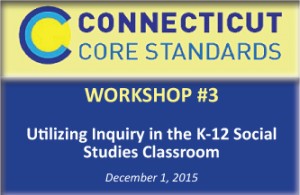 |
DATE: December 1, 2015
GUEST PRESENTER:
|
 |
| This document, provides guidance to states on upgrading state social studies standards to include the application of knowledge within the disciplines of civics, economics, geography, and history. |
AMAZON BOOKS
 |
Make Just One Change – by Dan Rothstein and Luz Santana | ISBN-13: 978-1612500997
ABSTRACT: The authors of Make Just One Change argue that formulating one’s own questions is “the single most essential skill for learning”—and one that should be taught to all students. They also argue that it should be taught in the simplest way possible. Drawing on twenty years of experience, the authors present the Question Formulation Technique, a concise and powerful protocol that enables learners to produce their own questions, improve their questions, and strategize how to use them. Make Just One Change features the voices and experiences of teachers in classrooms across the country to illustrate the use of the Question Formulation Technique across grade levels and subject areas and with different kinds of learners. |
ASCD PUBLICATIONS
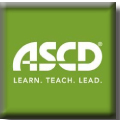 |
“The Right Questions” – by Dan Rothstein and Luz Santana From Educational Leadership, October 2014 – Instruction That Sticks (Volume 72 | Number 2). This article includes the six steps for the Question Formulation Technique (QFT) Process. Questioning For Learning “Making Questions Flow” – by Dan Rothstein, Luz Santana and Andrew P. Minigan |
C3 TEACHERS
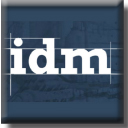 |
The IDM – The Inquiry Design Model (IDM) is a distinctive approach to creating curriculum and instructional materials that honors teachers’ knowledge and expertise, avoids overprescription, and focuses on the main elements of the instructional design process as envisioned in the Inquiry Arc of the College, Career, and Civic Life (C3) Framework for State Social Studies Standards (2013). Unique to the IDM is the blueprint, a one-page representation of the questions, tasks, and sources that define a curricular inquiry. These are all available on this site.
IDM At A Glance – Inquiry Model at a Glance | PDF by Grant, Lee and Swan 2014 |
EDUTOPIA
 |
Blog Post – September 6, 2013
This post contains free online resources for primary source documents from these sources: National Archives, Doc Teach, Spartacus Educational, Fordam University, The Avalon Project (including Project Diana), Life Magazine Photo Archive. |
EngageNY
 |
New York State K-12 Social Studies Resource Toolkit
This Toolkit is designed to put instructional and curriculum design tools into the hands of teachers and leaders in local districts. Its resources focus on implementation of the Inquiry Arc, as presented in The College, Career, and Civic Life (C3) Framework for Social Studies State Standards, including the four dimensions: (1) developing questions and planning inquiries; (2) applying disciplinary concepts and tools; (3) evaluating sources and using evidence; and, (4) communicating conclusions and taking informed action. The foundation of the New York State Toolkit is based on the Inquiry Design Model (IDM). |
 |
Toolkit Resources by Level
Toolkit resources are organized into topics and key ideas by level. There is a chart for each level (K-4, 5-8, 9-12) which displays the array of inquiries being developed for each grade level. By viewing the topics for each inquiry (each cell in chart is a link), curriculum teams can begin planning their work to develop additional inquiries for the remaining grade-level topics. |
HISTORY TECH
 |
Blog Post – May 1, 2015
This post contains 300 sample compelling questions for the social studies. The link to Gilder Lehrman’s latest list of 177 sample questions requires a login (accounts are free). |
iTunes Apps
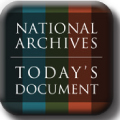 |
Free app for primary source documents if using an iPad
National Archives – Today’s Document Today’s Document is an interactive gallery that displays a significant historical document or photo for each day of the year. Using its searchable database, explore American history with 365 of the most fascinating documents and photos from the collections of the US National Archives. You can learn what happened on your birthday, search for a document by keyword, or just browse at your leisure. Featured documents have included popular documents like the Declaration of Independence and Emancipation Proclamation as well as lesser known documents. |
 |
Free app for primary source documents if using an iPad
Civic Quotes provides a collection of notable quotations from a variety of U.S. government leaders over the years addressing representative democracy, the impact of government, the democratic process, and citizen participation. Read the quotes, view primary source images related to the themes of the quotes, learn more about the person being quoted, and take a quiz featuring questions from recent national standardized tests in civics! Civic Quotes is searchable in various ways and includes a link to a web version that also provides lesson plans and more resources for teachers. |
NATIONAL COUNCIL FOR THE SOCIAL STUDIES (NCSS)
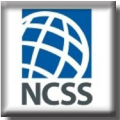 |
NCSS Website
Resources for teachers of social studies available by level. Specific information about C3 Framework for Social Studies State Standards available as a PDF file. Notable Social Studies Trade Books List of notable social studies trade books for young people 2015 found on NCSS website. Lists from previous years are found on the site as well. |
NEW YORK STATE ARCHIVES
 |
Instructional Videos
Instructional videos in English and Spanish for teachers on using primary sources of various media types in the classroom. Documents and Learning Activities Primary sources and learning activities can be searched by topics, grade level, lesson type, learning standards and key ideas, CCSS, social studies practices and educational projects. Blank worksheets and standards-based lessons are also available for download on this site. |
THE RIGHT QUESTION INSTITUTE
 |
Make Just One Change Web Resources
This website offers resources and discussions on the thesis of the book, Make Just One Change, by Dan Rothstein and Luz Santana. The QFT and Summative Assessment Video This 10-minute video demonstrates innovative use of the Question Formulation Technique (QFT) for summative assessment purposes in Joshua Beer’s 8th grade class in a rural New Hampshire community. Students work with this Question Focus as they come to the end of a unit of study: Questions that should be asked about American imperialism at the turn of the 20th century. |

